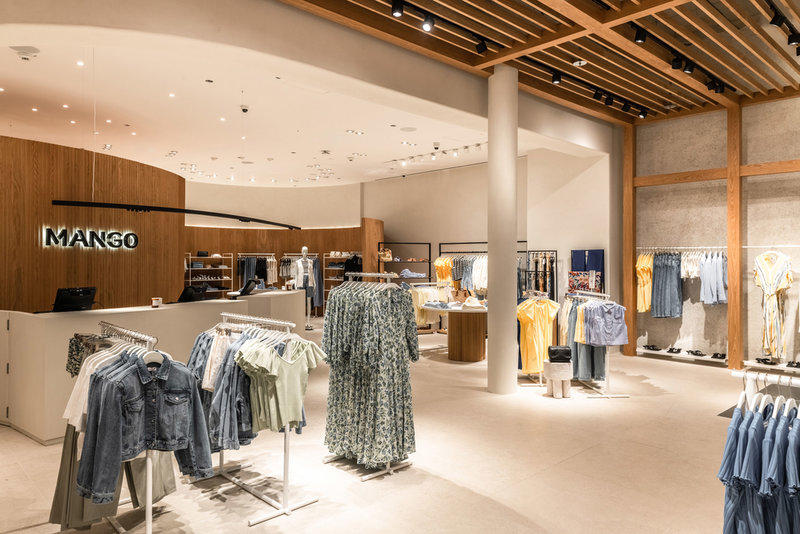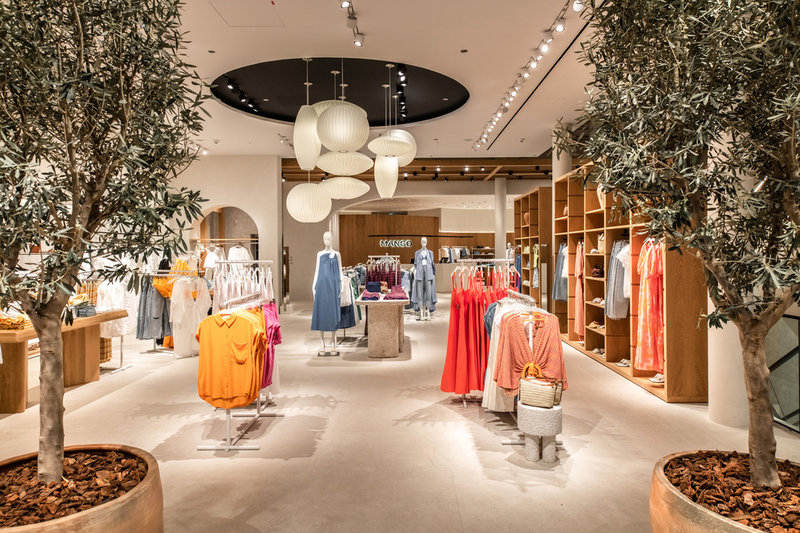Interview
Mango’s sustainable vision
In an exclusive interview, Mango's global director of sustainability and sourcing, Andrés Fernández, tells Michelle Russell how the company is working with its vendors to boost circularity and transparency across the supply chain.

As one of Europe’s leading fashion groups, Mango is keen to ensure its impact on the environment is as minimal as possible. Following the publication of its Sustainable Vision 2030 in December, Fernandez talks to Just Style exclusively about the company’s work to reduce its impact.
With a team of more than 20 people directly dedicated to sustainability, Fernandez is confident Mango is fully equipped to ensure all operations are climate neutral by 2050. And that involves the challenge of working with its suppliers to ensure they also play their part.
Mango’s sustainable supplier relationship
By involving the suppliers in its sustainability work, Mango believes it can reach all levels of its supply chain.
“One of the things we’re trying to do is boost the level of communication we’ve got with them,” Fernandez tells Just Style. “We’ve had to raise the level of engagement with all vendors and let them understand the strategy.”
To reinforce this, Mango is holding an annual manufacturing summit comprising sessions that will touch on sustainability, digitalisation, efficiency, and any other issues affecting the company. The aim is to provide suppliers with the visibility they need to make positive change.
“Mango has a dedicated channel of communication with vendors so we can deal with all of these discussions closely with them,” Fernandez explains. “We want to let them know how we’re measuring sustainability, performance and the quality of our product.
“It’s this framework in which we try to strengthen our partnerships with our important suppliers – it’s about communicating and spreading the word on how we can work together.”
To validate the sustainability attributes of all its fibres, Mango is demanding total traceability and transparency from its suppliers with regard to the materials and processes used in the manufacture of its products.
One of its targets is to make a more sustainable product and collection by prioritising sustainable materials and a circular design, so that by 2030 these predominate in the Mango product and 100% of the fibres used in its garments are more sustainable or recycled.
By 2025, the fashion retailer wants 100% of the cotton it uses to be sustainable, 100% of the polyester it uses to be recycled and 100% of the cellulose fibres it uses to be of controlled origin and traceable.
With this in mind, Mango is working with its suppliers on issues such as circularity by design as some of the applications it uses are not straightforward to put into practice.
“For example, if we want to make a fully recyclable cotton t-shirt we need to make sure the sewing thread is also made of cotton so we’re talking with suppliers to ensure this happens. It’s about studying everything carefully with our suppliers.”
For some suppliers, the financial burden of making its operations greener might be a challenge in itself, but Mango is committed to helping them embark on this sustainability journey.
“For the most strategic vendors we have developed a framework of collaboration with them so they have some slightly enhanced payment terms and visibility on certain business volume commitments,” Fernandez explains. “We haven’t reached the level of direct investment with them, but we will continue looking into this option.”

A question of due diligence
As well as concerns over the sustainability of its supply chain, Mango, along with other fashion brands selling and operating within Europe, will also need to consider the welfare of its suppliers with the introduction of new due diligence.
Earlier this year, the European Commission adopted a proposal for a directive on corporate sustainability due diligence, meaning clothing brands will be held to account over the impact of their operations on the environment and people working within their supply chains.
For its part, Mango is prepared and Fernandez says the new legislation is needed and will be helpful in levelling the playing field.
“We’ve been working very closely with our supply chain and manufacturers for a long time. There are a few things we need to work on but for the most part we’ve taken good care in understanding who is working for us, where they’re producing and where the materials are coming from and we’re sure that whoever is making the garments for us is doing so in a good environment.”
He makes the point that the corporate sustainability department in Mango was started two decades ago with a focus on analysing risks in the supply chain and having the mechanisms in place to ensure the company is fully prepared.
In terms of the wider fashion industry, he says brands of a similar size to Mango, or bigger, are working along a similar line. However, SMEs, smaller companies and trading agencies will need to work on these in the near future if they’re not doing so already.
“We don’t know the exact timing yet [of the due diligence launch] and there will be a lot of discussion around it but it will come out at some point and whoever is not prepared should start working now.”
Validating the customer journey
At the other end of its supply chain, Mango is keen to ensure transparency when it comes to its customers; making sure they are fully aware of the sustainability credentials of its apparel when making a purchase.
“We must have an educational approach with how we communicate with our customers,” Fernandez emphasises. “Our customers have grown a lot in the last few years in terms of knowledge of sustainability and day-to-day habits.
“In terms of textiles and fashion – there are still some unknowns for the general public and the best way to ensure customers understand is to be transparent and honest about what you’re doing and not doing and what lies ahead.”
Fernandez believes education and talking about important topics such as organic cotton, recycling fibres and textile waste, is key. For example, Mango recently invested in the textile waste start-up Recovo.
“It’s our responsibility to raise this awareness and [educate] our customers about our initiatives,” he states.
One such initiative, outlined in Mango’s Sustainable Vision 2030 plan, is to progressively replace the Committed label on its garments with a QR code that will redirect consumers to its website, where the company will provide information on the composition and design and production location of each product.
This initiative is expected to launch at the end of March 2023, with the QR code already present in Mango’s hangtags.
To compliment this, the retailer is also committed to becoming the first major fashion company in Spain to publish a list of its Tier 3 factories, related to suppliers of fabrics and fittings. This will happen by the end of this year.

How is Mango making the sustainability switch
For all its optimism, however, Mango is realistic that its ambitions won’t come without their own challenges. The biggest of those, Fernandez says, is achieving decarbonisation.
“It’s key that we switch to alternative fibres that will have the least environmental impact. Some of those will be too small to be used massively. It’s important to push forward on this so there’s enough scale to allow for better quality and cost levels and that can translate to the end products.
“The same for recycled fibres and fabrics – there are still a lot of solutions that need to be developed – firstly to be able to separate certain fibres and recycle them. We need to make sure we can recycle as many types of textile waste as possible. That needs to be developed for the whole industry so it’s important this gets some pace.”
Cooperation across the industry will be key to transformation, Fernandez adds. “How we create and manufacture products and how we keep watch on products at a factory level – it’s a big change.
“We’re engaging in conversations with many of our competitors and we’re exchanging knowledge and starting to work together on joint initiatives and projects. As members of the Fashion Pact we’re seeing this happening all of the time. We’re learning and gaining knowledge but we’re also sharing our progress on certain projects.”
Mango is currently pioneering an initiative for substituting plastic packaging out of factories to paper packaging and is in the process of scaling this up.
“Communication and sharing will be key and on one day we will learn something new and on another we’ll share our expertise with others and that will be necessary for us all to move forward.”
BACK TO TOP
Main image: Andrés Fernández